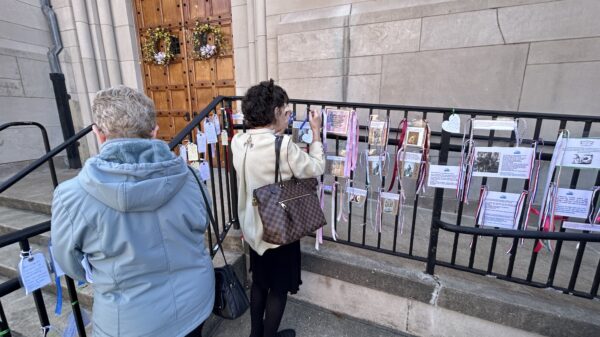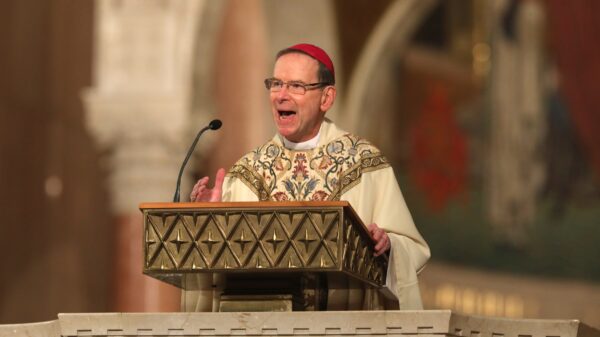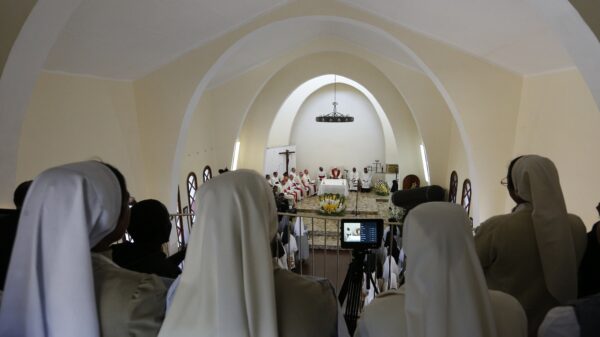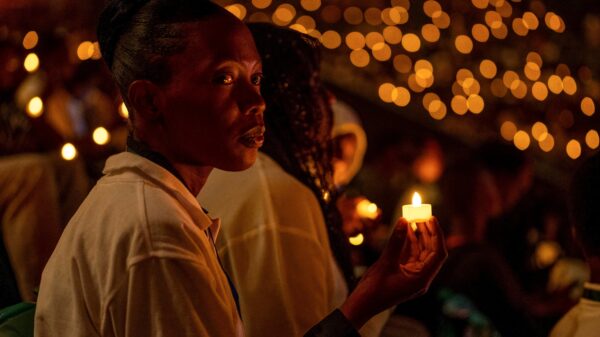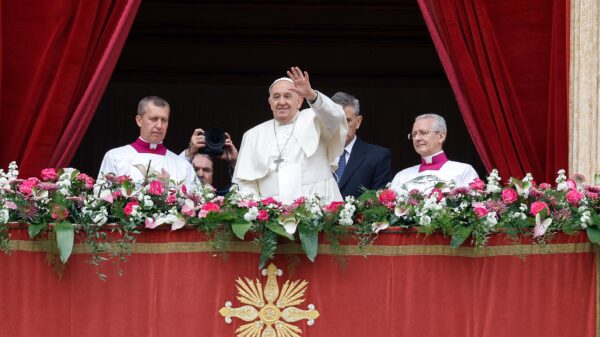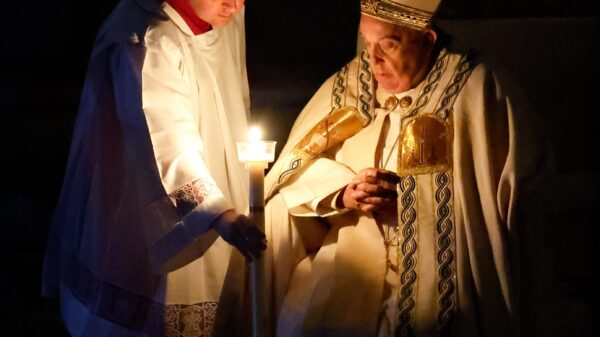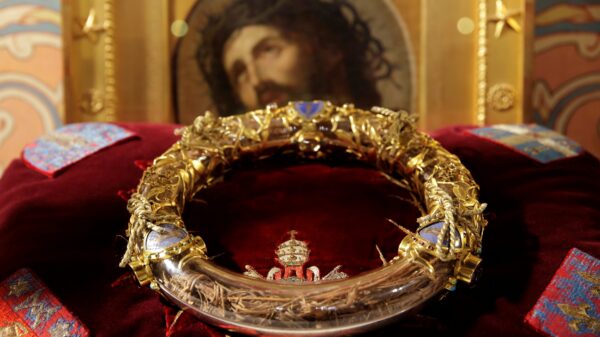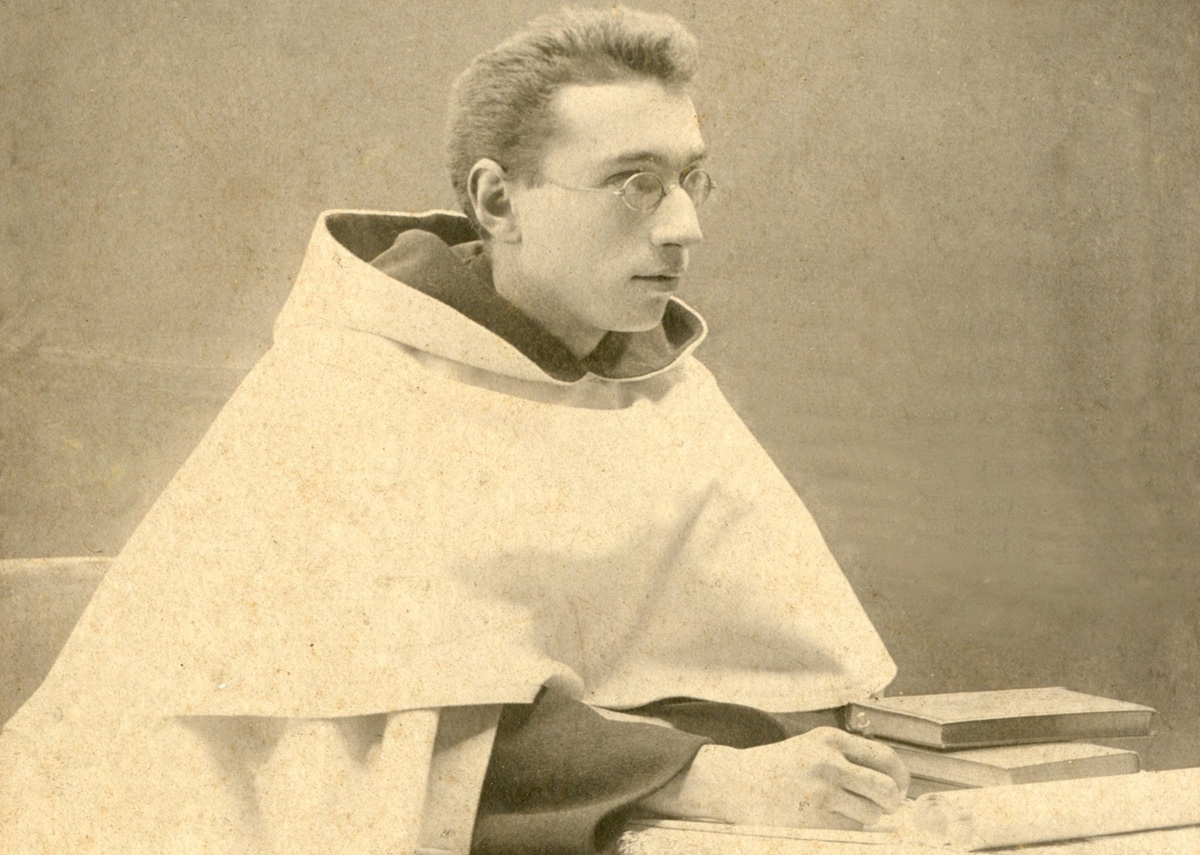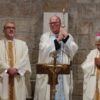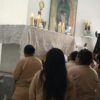(OSV News) — “Words awaken, examples attract. The gift of language is much, but it is only a small part of human witnessing. When we are united with God, he confirms our word by his grace.” – St. Titus Brandsma, “The Richness of Pentecost.”
St. Titus Brandsma (1881-1942), patron of OSV News, was a Dutch Carmelite priest, journalist, scholar and martyr. Canonized by Pope Francis in May 2022, he has become a spiritual mentor to Catholic media through his witness to the faith amid totalitarianism, war and genocide. St. John Paul II, who beatified Brandsma in 1985, called the Carmelite a “valiant journalist,” one who offered a “strenuous defense of the Catholic press” and in the process became a “martyr of freedom of expression against the tyranny of dictatorship.”
Born on Feb. 23, 1881 in northern Holland, Anno Sjoerd Brandsma entered the Carmelite order at age 17, taking his father’s name Titus for religious life. Following his 1905 ordination to the priesthood, Brandsma studied philosophy at the Pontifical Gregorian University in Rome, earning a doctoral degree in 1909. Returning to Holland, he taught at his order’s study house and was later appointed professor of philosophy at the Catholic University of Nijmegen (now Radboud University). Brandsma traveled throughout Holland lecturing on mysticism, prompting one writer to dub him “the mystic with the train ticket.”
Brandsma embraced journalism as a vital means of evangelization, writing numerous magazine and newspaper articles on Catholic spirituality, as well as homilies and reflections. He served as chief editor of De Stad Oss and founded the Karmelrozen magazine, eventually becoming an adviser to the Roman Catholic Journalists’ Association.
At the same time, Brandsma’s “ever-burning spiritual fire, which shone through in his journalism, would prove fatal,” as philosopher Inigo Bocken noted. Brandsma quickly recognized the dangers of Nazism, and he exhorted the Catholic press not to accept advertisements from organizations supportive of the Nazi regime, which invaded the Netherlands in May 1940. In response, Nazi police arrested Brandsma in January 1942, ultimately deporting him to the Dachau concentration camp in southern Germany.
Even in prison, Brandsma continued to write, composing several letters, meditations on the Stations of the Cross and an unfinished biography of St. Teresa of Avila. His correspondence to loved ones detailed his regular prayer life, his acceptance of suffering and his profound hope in Christ. Informed of his transfer to Dachau, Bransdma calmly assured his family in a letter that “the dear Lord God is everywhere.”
His health ruined by the camp’s conditions and medical experimentation, Brandsma was executed on July 26, 1942. That same day, the Dutch bishops issued a pastoral letter protesting the deportation of the Netherlands’ Jews, most of whom perished in Nazi death camps.
Brandsma gave his rosary beads to the nurse who administered the lethal injection, having prayed for her conversion. Several years later, she sought forgiveness and served as a witness in Brandsma’s cause for sainthood.
Gina Christian is a National Reporter for OSV News.



